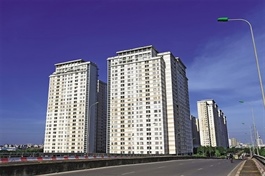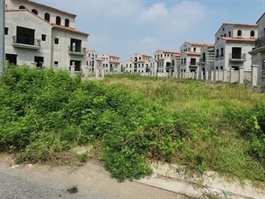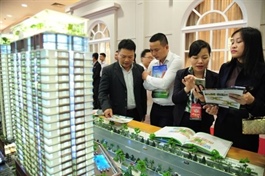Building Hanoi's smart city with smart banking
Building Hanoi's smart city with smart banking
In Hanoi's smart city development strategy, smart payment and open banking ecosystems are critically important.
Building a smart city with a smart payment system is crucial for Hanoi's transformation and breakthrough in urban development, Ha Minh Hai, Deputy Chairman of the Hanoi People's Committee, highlighted the city's strategic approach at the "Hanoi - Smart City and Open Banking Ecosystem" seminar held earlier this week.
He pointed out that Hanoi has made significant progress in its digital city development by implementing cashless payment solutions in public services, transportation, social welfare, e-invoicing, and smart payment streets.
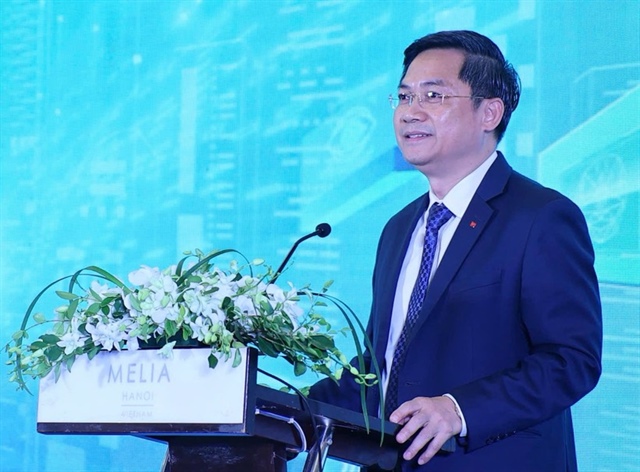
Ha Minh Hai, Deputy Chairman of the Hanoi People's Committee, speaks at the conference held on October 2. Photos: VNA |
Hai emphasized that in the context of international integration and the Fourth Industrial Revolution, building a smart city is both essential and urgent.
"A smart city addresses challenges related to population, environment, transportation, and resource management while enhancing residents' quality of life and promoting sustainable and inclusive development," he stressed.
He said smart payment systems and open banking are fundamental elements in the connectivity of public and social services as innovative financial products better meet customer needs and foster competition in the banking sector.
These systems go beyond financial transactions and affect various sectors, including e-commerce, public services, healthcare, education, and transportation.
In Hanoi, the rise of cashless payment methods, including bank cards, e-wallets, QR codes, and mobile payments, has saved time, increased security and convenience for citizens, and helped businesses manage their finances effectively while helping the city government manage its budget transparently.
He said that adopting digital technologies, especially the development of a smart payment ecosystem is part of Hanoi's efforts to become a smart, modern, and globally connected city.
Financial institutions make the move to open banking
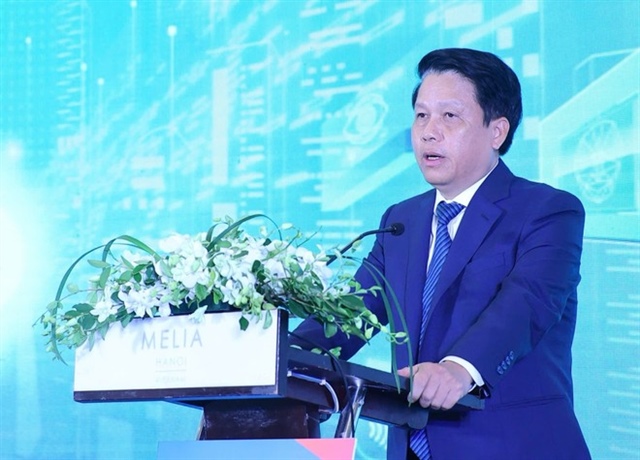
Pham Tien Dung, Deputy Governor of the State Bank of Vietnam, speaks at the event. |
At the event, Pham Tien Dung, Deputy Governor of the State Bank of Vietnam, highlighted that the seminar presented a new, developed image of Hanoi, in line with its goal to become a smart city and position it among the country's leaders in digital transformation.
He also highlighted the emerging concept of open banking which financial institutions are shifting from traditional models to open banking. This transition involves the integration of technology platforms, payment solutions, and data sharing to create a digital ecosystem.
Despite the potential benefits for citizens and businesses, the development of an open banking ecosystem faces challenges related to security, data governance, and standardization.
"As a banking regulator, we are committed to refining the regulatory framework for open banking to enable financial institutions to implement these systems, improving customer service," he emphasized.

An overview of the conference. |
The seminar was part of the series of events for Vietnam Card Day 2024, celebrating the 70th anniversary of the liberation of the capital (October 10, 1954 - October 10, 2024).
A press conference will mark the day to announce the series of events on September 26; the Online Mega Sale Campaign (September 30 - October 26); a thematic seminar on October 2; a career orientation seminar at the National University of Economics on October 4; and the 2024 Vietnam Card Day Event - Song Festival at Bach Khoa Stadium (October 5-6).
Vietnam Card Day 2024 will support the goals of the Cashless Payment Promotion Scheme (2021-2025) and the National Financial Inclusion Strategy (2025 Vision 2030).
The event aims to accelerate the adoption of cashless payments in urban areas and expand to rural areas, improve access to banking, and promote bank payments for public services. The event also introduced open banking, which allows banks to share data with third parties to deliver innovative experiences to customers, a key change in banking products and services.



